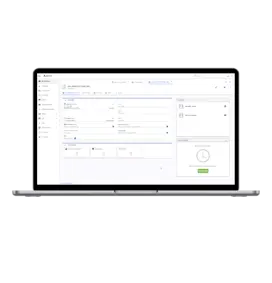What Is ERP Testing?
What Is ERP Testing?
What Is ERP Testing?
16 Mar 2020
Aptean Staff Writer
When you first implement enterprise resource planning (ERP) software, you want to make sure that everything has been installed correctly and runs smoothly—so that you can get up and running, and capturing ROI as soon as possible. But, how do you accomplish this? By conducting ERP testing.
So, what is ERP testing? Here is a definition: ERP testing ensures the proper functioning and configuration of each module that will be used, per the organization’s needs. In practice, that means testing that your implementation has not only gone as you planned, but it going to set your business up for success in the long term.
Testing the ERP implementation process is important because of the very crucial role that it plays in the day to day activities of your business. There are different ways to test your new enterprise software. In today’s blog post, we'll cover the different testing types, which are all meant to ensure that your business is getting the most out of your enterprise resource planning software. Continue reading to learn more about the testing process in detail.
Getting Ready to Test Your ERP System
With ERP testing, the focus tends to be on each modules functionality under specific circumstances and scenarios. The process tends to be carried out manually or automated. There are three different phases of preparing for testing—preparation, execution and evaluation. Let’s break down these three different phases.
The ERP Testing Process
Preparation – this portion of the testing cycle includes setting up the test system, test suites preparation and creating testing data.
Execution – consists of execution of the test created during the preparation period and logging all defects and reporting the status of the tests.
Evaluation – test evaluation includes analyzing any found defects, assessing test plans and causes, test suites preparation and documenting the overall testing process.
The Different Forms of ERP Testing Techniques
There are different forms of ERP testing techniques, most often used when going through the ERP testing process. Let’s go into detail about some of those techniques.
Functional testing – this form of a testing technique involves knowing whether the ERP system offers solutions required for a specific organizational need. This testing technique makes sure that all business features are testing, including software and hardware that help run ERP software. In order for this testing to be considered successful, creating a description of test goals and objectives can act as a barometer.
Performance testing – this testing technique tests the ERP systems ability to perform their individualized tasks in demanding areas and situations. Because ERP runs other integrated systems, it’s crucial to test its performance during those high demand situations, including moments with high data flows and transactions.
Automated testing – this form of testing refers to the automation of tasks, making tedious tasks easier and quicker to do by completing them all at once. It’s important for a company to select suitable automation tools and cover all test processes for successful results.
Integration testing – integration testing involves assessing business scenarios. The aim is how well the ERP system assimilates into the company’s business processes to deliver the expected results.
Other testing techniques include: data handling, security, adaptability, usability and installation testing.
Testing should normally begin when system configuration does. Each and every module should be tested to ensure that it works correctly and gives you exactly what you're looking for. And don't forget to include your users in the testing process. They're the ones that will be dealing with the software on a day-to-day basis so it needs to work for them. Paying attention to their questions and comments can allow for necessary changes to be made before you're using the system in earnest, often securing quicker staff adoption and ROI.
ERP testing requires a lot of work, but it will be well worth it. The benefits of implementing ERP software can transform your business—propelling you to the next level of success. The best way to capture these benefits and ensure a smooth ERP implementation process is to choose an experienced vendor with deep expertise in your specific industry.
Find out more about Aptean's range of industry-specific ERP software or get in touch with our ERP solution experts who are ready and willing to answer all your questions and help you get started on selecting the right solution for your business.
Related Content


Request a callback from a manufacturing ERP expert
Discover the benefits of software designed specifically for the discrete manufacturing industry.






